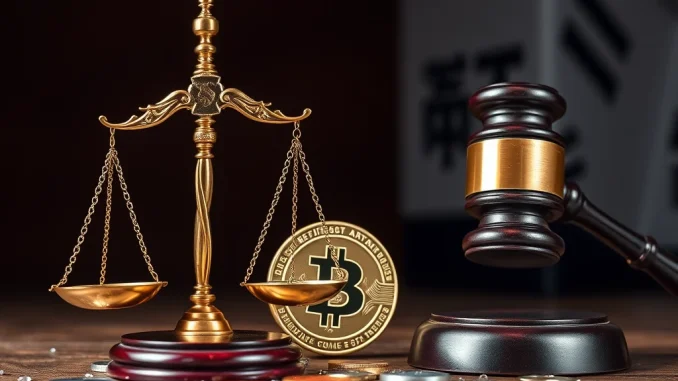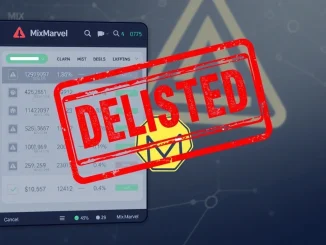
The world of cryptocurrency is often marked by rapid developments, and recent events surrounding the WEMIX token in South Korea are no exception. A significant number of investors are taking action against a controversial decision.
Why Are WEMIX Investors Protesting?
A substantial group of crypto investors in South Korea has voiced strong opposition to the recent delisting of the WEMIX token from local exchanges. According to reports, 3,150 investors have formally filed a petition protesting this move.
Their core grievance centers on the manner in which the delisting occurred. The petition alleges that the decision, made by the Digital Asset eXchange Alliance (DAXA), was unilateral and lacked sufficient communication or cooperation among the trading platforms involved.
This isn’t the first time WEMIX has faced such challenges, adding another layer of complexity to the situation for its holders.
The DAXA Decision and Its Rationale
The Digital Asset eXchange Alliance (DAXA), an association of major South Korean crypto exchanges, previously announced its decision to remove WEMIX. The alliance cited concerns regarding the token’s reliability and security as the primary reasons for the delisting.
Such decisions by regulatory or self-regulatory bodies like DAXA can significantly impact a token’s accessibility and market value, often leading to sharp price declines and investor distress.
What Happens Next? The South Korea Crypto Legal Battle
The dispute over the WEMIX delisting has escalated beyond the exchanges and investor protests. It is now headed to court.
The Seoul court has scheduled a hearing to address the matter. This legal proceeding, set for May 23, will examine the arguments from both the investors, who feel unfairly treated by DAXA’s process, and the exchanges/DAXA, who stand by their decision based on cited concerns.
The outcome of this hearing could set a precedent for how delisting decisions are made and challenged within the South Korea crypto market.
Implications for the Market and Investors
This case highlights the ongoing tension between regulatory efforts to ensure market integrity and investor protection, and the need for clear, transparent processes. For crypto investors, delisting events represent a significant risk, potentially locking up funds or forcing sales at unfavorable prices.
The legal challenge brought by the WEMIX holders underscores the growing willingness of the crypto community to seek legal recourse when they perceive unfair or non-transparent actions by platforms or alliances like DAXA.
Conclusion
The conflict surrounding the WEMIX delisting in South Korea is a critical development, pitting a large group of investors against the collective decision of major exchanges via DAXA. With the matter now before the Seoul court, all eyes will be on the May 23 hearing. This case is a reminder of the regulatory uncertainties in the crypto space and the challenges faced by both token projects and investors when reliability and security concerns lead to drastic market actions.



